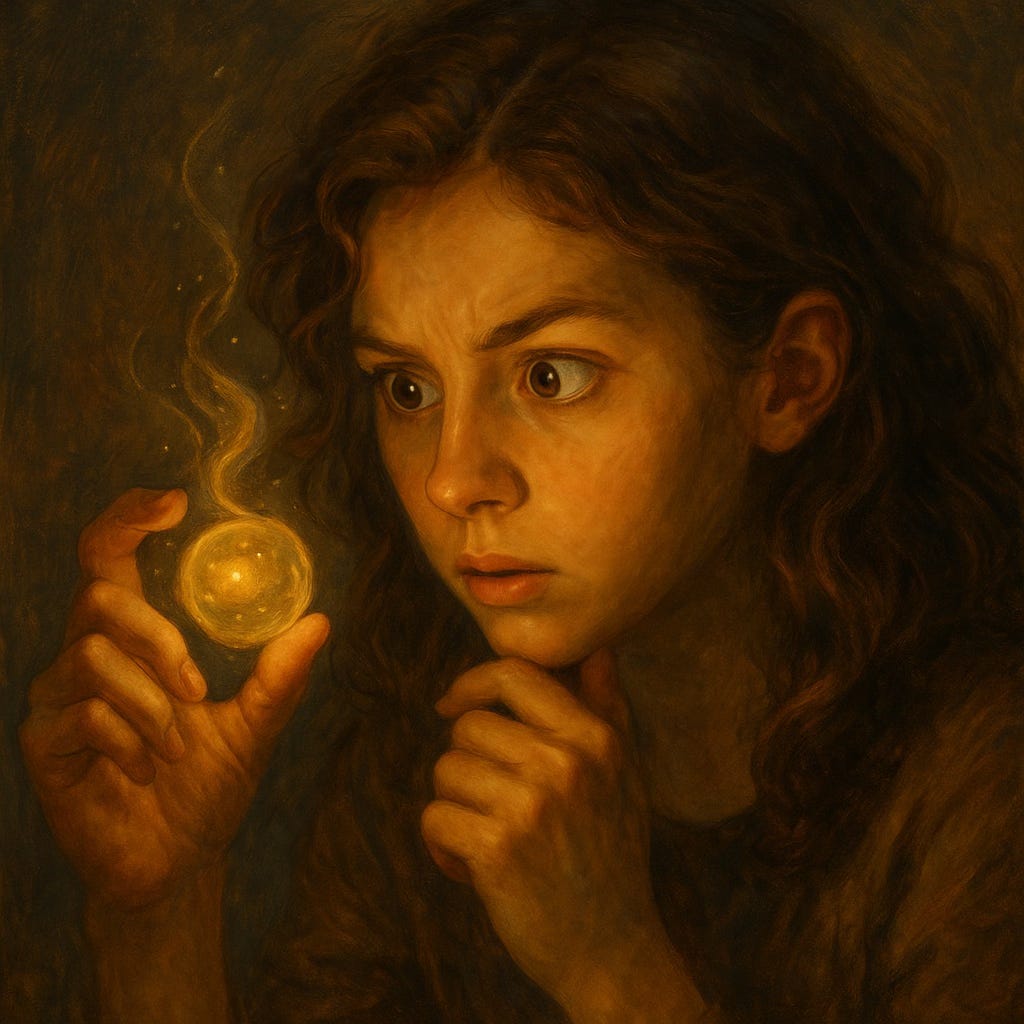“Live your questions now, and perhaps without even knowing it, you will live along some distant day into your answers.”
~ Rilke
There is a quiet strength in the phrase, “I don’t know.” On the surface, it may sound weak… like a retreat from responsibility, clarity, or confidence. But beneath this humble admission lies a profound foundation for wisdom, innovation, and connection. In a world growing more complex by the moment, “knowing that you don’t know” may be the most powerful stance we can take.
The Illusion of Certainty
Many of us were raised in systems - educational, political, religious - that reward certainty. We’re told that success belongs to those who know the answers, not those who ask better questions. But certainty has a dark side. When we become overly confident in what we know, we unconsciously place blinders on our minds. We begin to filter out data that doesn’t match our worldview. We ignore perspectives that challenge our beliefs. And we resist innovation because it threatens the safe container of what we’ve already accepted as “truth.”
In this way, certainty becomes a cage.
The Infinite Web of Interdependencies
The natural world offers a different model. It is not a mechanical machine of linear cause and effect. Rather, it is an intricate, ever-shifting tapestry of relationships, feedback loops, and nested systems. An insect disappears in one corner of the globe and agriculture is disrupted across an ocean. A policy decision in one nation creates ripple effects in ecosystems, economies, and human psychology elsewhere. Life is a web… not a flowchart.
When we realize this, the idea that we can “know” the full impact of anything becomes laughable. It’s not that we shouldn’t pursue knowledge; it’s that true knowledge begins when we acknowledge its limits.
The Evolution of Scientific Truth
Science - humanity’s most revered truth seeking method - embodies this paradox. At its best, science is not about certainty, but about hypothesis, testing, and revision. Newtonian physics reigned for centuries before Einstein came along and reframed space and time. Quantum mechanics then exploded our understanding even further, showing us that particles can be waves, observation changes outcomes, and reality itself might be probabilistic.
Nutrition advice changes. Climate models evolve. The universe we thought was expanding slowly turns out to be accelerating. What was once cutting… edge soon becomes outdated, then replaced altogether. And that’s not failure. That is science working as it should… a continual refinement born of uncertainty and curiosity.
Openness: The Gateway to Innovation
The great innovators - Einstein, da Vinci, Marie Curie, Alan Turing, Maya Angelou - were not arrogant know-it-alls. They were questioners. Wanderers. Explorers. They ventured beyond what was known into the mysterious unknown, where new solutions are born. Their minds were elastic, humble enough to be surprised.
To believe “I already know” is to shut the door. To say “I don’t know” is to open it.
Innovation thrives in environments where people are willing to hold ideas lightly, test assumptions, and let go of what doesn’t serve. This requires the courage to be wrong and the curiosity to ask, “What else could be true?”
Judgment Fades, Communion Grows
There is another, quieter miracle that emerges from this posture: the end of judgment. When we realize that we don’t - and can’t - know the full experience, context, or history behind another person’s actions or beliefs, something softens in us. We stop labeling others as stupid, wrong, or evil. Instead, we become curious.
What shaped them? What pain do they carry? What don’t I see?
This shift doesn’t mean condoning harm, but it opens the possibility of understanding, empathy, and even communion. It dissolves the illusion of separation and invites us into shared humanity.
The Paradox of Highest Effectiveness
Ironically, the most effective people… those who lead with impact and create lasting change, are often those who live from this place of unknowing. They are masters of deep listening. They don’t rush to fix. They don’t impose answers. They create space for discovery, for voices to be heard, for unexpected solutions to emerge.
This isn’t weakness… it’s mastery. Because they are not blinded by the need to appear “right,” they are open to being wise.
Conclusion: The Beginning of Real Knowing
Knowing that you don’t know is not the end of knowledge… it is the beginning of wisdom. It is not resignation… it is receptivity. It is not passivity… it is the doorway to deeper insight, connection, and transformation.
In an era of false certainty, manipulated narratives, and algorithmic echo chambers, perhaps the most revolutionary act is to sit still, breathe deeply, and say:
“I don’t know. But I am here. I am listening. Let’s discover together.”
And from that place, a more beautiful, benevolent, and innovative world begins.




